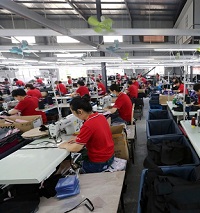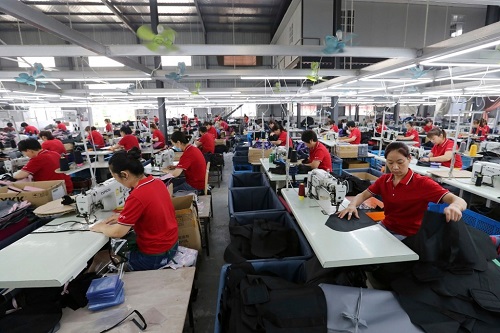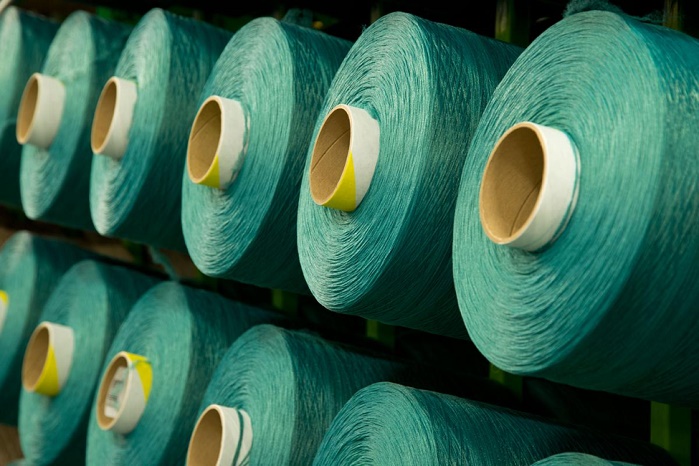As per FTI Consultings’s Trends in the Apparel Sector survey, the economic catastrophe spurred by COVID-19 was particularly harsh on the apparel industry. With the entire world practicing self-distancing, governments across the US deeming apparel as ‘non-essential’ business, retailers saw their sales plummet. Around 36 per cent of the 1,000 consumers surveyed said support of COVID-19 victims and frontline workers influenced their brand loyalty. Nearly the same number of respondents reported being influenced by great prices.
Price and value drove the majority of customers to switch brands. Around 29 percent respondents switched brands during COVID-19 due to the product’s price and value factors. Around 54 per cent reported missing brick and mortar stores for the touch feel and see factor they offered. However, these consumers also highlighted the convenience of online purchasing and preference for contactless purchase/concerns about hygiene as being the core drivers for customers not looking to return to stores.
According to these respondents, online apparel sales are projected to cannibalize about 7 to 10 per cent of store sales. They advised retailers to improve distribution channels and automation to meet this demand. Retailers should also conduct a holistic review of their store portfolios to identify what store closures are necessary for long-term survival. One-third of consumers reported being excited to return to stores for the tactile experience of shopping, such as trying on clothes and leaving with new purchases in hand.
AEPC has hailed the government’s decision to raise exporters’ ceiling limit – both – liability and turnover – for availing the Emergency Credit Line Guarantee scheme (ECLGS). Many MSMEs earlier criticized the scheme for granting insufficient funds of Rs 3-lakh-crore for thousands of micro units in the country. But on July 29, member lending institution sanctioned a sum of Rs 136,155 crore for the scheme, of which Rs 87,277 crore has been disbursed.
The government has also decided to include individual loans given for business purpose within the ambit of ECLGS increasing the earlier liability ceiling from Rs 25 crore to Rs 50 crore and annual turnover from Rs 100 crore to Rs 250 crore. AEPC has sought a further increase in the liability limit up to Rs 100 crore and removal of the turnover limit as under the new classification export turnover would not be counted for MSMEs.
Investors group Club Deal 8 (CD8), which aims to buy American retailer Brooks Brothers, plans to collaborate with an American Group to support its strategies for the acquisition of the Black Label. Brooks Brothers has obtained $80 million in debtor-in-possession financing from ABG-BB LLC, a partnership between Authentic Brands Group LLC and Simon Property Group Inc. ABG is open to working with the Italian group, although any partnership would most likely involve a licensing arrangement rather than a co-ownership deal.
Last month, Brooks Brothers filed a motion in the US Bankruptcy Court for the District of Delaware to obtain court approval of an asset purchase agreement with Sparc Group LLC, a company backed by ABG with Simon Property Group. The CD8 offer will stand on three pillars: sustainability; a lower number of stores compared to the 125 proposed by Authentic Brands Group, which has stepped forward with a $305 million stalking-horse bid to purchase Brooks Brothers, and a greater emphasis on the online channel.
CD8 investors include Alessandro Giglio, President, Giglio Group; the Biella-based Gruppo Verzoletto; Brando Crespi, Founder, Pro-Natura; legal manager Lorenza Morello, and Studio Dentons as an adviser.
Analytics firm GlobalData expects the pandemic to cost the apparel and footwear industries across the Asia-Pacific region $95.4 billion in lost sales this year. The global industry will lose $395.6 billion in sales, which represents a 19.5-per-cent decline on last year’s figures. The sector will account for 29.1 per cent of the total $1.3617 trillion impact of lost revenues by the retail industry during the period.
According to research, 60 per cent consumers noted trustworthiness, risk-free and familiarity as being the major factors currently influencing their choices of products/services. To increase sales, brands should continuously engage with consumers through social-media channels and personalized messages said Vijay Bhupathiraju, Retail Analyst, GlobalData. They should build trust by delivering messages addressing CO VID-19 and social responsibility and advertise the safety and hygiene measures taken during the manufacturing process and in-stores to drive more consumers to the stores.
Travel restrictions and safety concerns about the COVID-19 have forced Turkish denim mill Calik Denim to reschedule its third annual Ever Evolving Talks event in Amsterdam to April 2021. The conference was scheduled to take place the day before Kingpins Amsterdam in October, which announced last week its plans to cancel the trade show as well.
Calik Denim launched the annual conference in 2018 as a catalyst for change for the fashion industry as a whole. The first event focused on innovation, technology and sustainability. The second event dove deeper into topics like blockchain, Gen Z consumption habits and climate change.
Based on the company’s motto ‘Ever Evolving,’ which emphasizes continuous development, the Ever Evolving Talks by Calik Denim event is intended to bring industry stakeholders together and support their collective development.
The Auburn University RFID Lab, GS1 US and several leading retail companies have completed the Chain Integration Project (CHIP). The groundbreaking proof-of-concept demonstrated the effectiveness of using blockchain in combination with RFID to gather serialized product information. Three brands, Nike, PVH Corp., and Herman Kay, as well as two retailers, Kohl’s and Macy’s, contributed live data to the project. Though blockchain’s potential is still undefined in retail, CHIP represented an important step in helping to solve supply chain challenges that have plagued the industry for decades.
CHIP participants named claims and chargebacks as one of the costliest problems for brands and retailers. There's simply little to no communication of serialized data between the stakeholders involved. Claims are often settled in the absence of sufficient shipment information on both brand and retailer sides.
Though blockchain technology can hold them accountable for their agreements and create more order transparency, trading partners need to focus on the basic tenets of supply chain visibility to fully maximize blockchain for this purpose. Companies pursuing blockchain should have globally unique product identification in place (not proprietary identification numbers) as well as a uniform way to capture how the product changes hands throughout the supply chain, such as RFID. Without supply chain visibility and data completeness, order accuracy cannot be improved.
Data by The Cotton Textiles Export Promotion Council (TEXPROCIL) reveals, India’s textile exports to China declined by 74 per cent to touch $90 million during the April-June quarter this year. China’s share in India’s total exports of cotton textile products also halved to 6.9 per cent during the quarter as against 14 per cent in the corresponding quarter last fiscal.
This decline is a result of reciprocal measures carried out by Indian and Chinese governments such as detailed shipment inspections at ports, delaying clearing of goods, thereby also contributing to decline in exports, says KV Srinivasan, Managing Director, Premier Mills. Substitution of textile imports from China as well as contemplation of anti-dumping duties on certain Chinese products may further impact these imports, he said.
Overall, India’s cotton textile exports during the first quarter declined by 47 per cent to $1.29 billion against $2.42 billion in the same quarter last year. One of the main reasons for the decline was supply chain disruptions. Delays in documentation, especially Certificates of Origin in countries like China, Vietnam, Thailand and Malaysia also delayed deliveries, hitting exports, said Siddhartha Rajagopal, Executive Director, TEXPROCIL.
The Cambodian Footwear Association (CFA) has appealed to the European Commission to postpone partial withdrawal of its Everything but Arms (EBA) trade benefits. As per CFA, the withdrawal will cause economic damage well beyond what has been foreseen when the European Council undertook its assessment in 2019 and issued its Cambodia EBA decision in early February 2020.
COVID-19 has already resulted in the loss of 30,000-40,000 jobs in the country’s footwear sector. According to a recent membership survey by CFA, footwear production volumes in the first half of 2020 declined on an average 20-40 per cent per factory compared to 2019, and sectoral employment reductions led to loss of 30,000-40,000 jobs.
The survey forecasts worse outlook for the second half of 2020. There is not a single member factory that reported an increase in orders compared to the first half of the year, with most factories forecasting a further drop in production for an overall decline of 40-60 per cent for full year 2020 compared to 2019.
Based upon existing order volumes for the second half of 2020, 70 per cent of member factories are preparing to cut jobs or suspend production. Most of the remaining 30 per cent have already reduced employment and forecast production only at already reduced levels.
 Disruptions caused by COVID-19 is inducing 57 per cent textile and apparel organizations to diversify their sourcing away from Asian countries like China, Vietnam and Bangladesh, says the Supply Chain Resilience Report 2020 by BCI. Many apparel companies plan to shorten their supply chains due to the pandemic, with Asia becoming the biggest casualty, says the BCI report. Around 30 per cent companies intend to reduce their sourcing from Asia, while another 13.2 per cent expect to reduce their sourcing from China.
Disruptions caused by COVID-19 is inducing 57 per cent textile and apparel organizations to diversify their sourcing away from Asian countries like China, Vietnam and Bangladesh, says the Supply Chain Resilience Report 2020 by BCI. Many apparel companies plan to shorten their supply chains due to the pandemic, with Asia becoming the biggest casualty, says the BCI report. Around 30 per cent companies intend to reduce their sourcing from Asia, while another 13.2 per cent expect to reduce their sourcing from China.
The BCI Coronavirus Preparedness report published in March also revealed that within two months of January-March, the number of organizations who moved to local sourcing jumped from 16.3 to 36.4 per cent. The figure further surged to 66.2 per cent in June.
Companies to scrutinize suppliers locations, documents
Widespread global shutdowns have made it extremely important for companies to know the geographical location of their suppliers. The BCI report suggests, while 63.4 per cent respondents are aware of the location of their critical Tier I suppliers, only 36 per cent know the location of their Tier II suppliers. Post COVID, around 60 per cent respondents intend to do a deep analysis of all their suppliers, while 45.3 per cent organizations intend to determine the location of all their Tier-II suppliers. Some respondents also plan to scrutinize the documents of suppliers to determine their success rate, says Rachael Elliot, Head-Thought Leadership, BCI.
suggests, while 63.4 per cent respondents are aware of the location of their critical Tier I suppliers, only 36 per cent know the location of their Tier II suppliers. Post COVID, around 60 per cent respondents intend to do a deep analysis of all their suppliers, while 45.3 per cent organizations intend to determine the location of all their Tier-II suppliers. Some respondents also plan to scrutinize the documents of suppliers to determine their success rate, says Rachael Elliot, Head-Thought Leadership, BCI.
AI for demand forecasting
The report also analyzes respondents’ plans for future inventory holding. Around 46.1 per cent intend to maintain the same inventory level as usual whereas 19.6 per cent plan to increase their inventories. Of those planning to retain inventory levels, 58.1 per cent plan to change their supplier base to quicken the speed of their deliveries.
Apparel retailers plan to leverage their predictive capabilities to determine changing consumer trends. While 43.7 per cent already use demand forecasting, 26.8 per cent plan to adopt this technique in future. Thirty-eight of the organizations also plan to add inputs such as AI into their demand forecasting. These techniques can help organizations mine data from multiple inputs more effectively. Around 73 per cent retailers believe AI and machine can add significant value to their demand forecasting processes. Majority of small organizations do not use any dedicated logistics services. In case of larger organizations, 31.9 per cent have their own in-house logistics, 30.8 per cent use a third-party logistics (3PL) company and 30.2 per cent use a combination of in-house and 3PL.
Post-COVID, 79.7 per cent organizations intend to retain their third party logistics services providers, while 7.8 per cent intend to reduce their dependence on them and instead opt for in-house logistics services.
 In April’20, the Lithuanian Association of Clothing and Textile Companies (LATIA) predicted one third of its clothing and textile companies would go bankrupt and a quarter of people would lose their jobs. The association welcomed the government’s post-quarantine assistance measures, in particular the subsidies provided to these sectors for up to six months. However, to maintain sustainable jobs, the share of these subsidies needs to increase, especially in the fifth and sixth months, viewed Kestutis Dauksys, President, LATIA. In addition, export guarantees and support for companies with over 250 employees also needs to be increased, he added.
In April’20, the Lithuanian Association of Clothing and Textile Companies (LATIA) predicted one third of its clothing and textile companies would go bankrupt and a quarter of people would lose their jobs. The association welcomed the government’s post-quarantine assistance measures, in particular the subsidies provided to these sectors for up to six months. However, to maintain sustainable jobs, the share of these subsidies needs to increase, especially in the fifth and sixth months, viewed Kestutis Dauksys, President, LATIA. In addition, export guarantees and support for companies with over 250 employees also needs to be increased, he added.
Consumption decline leads to loss of export orders
COVID-19 restrictions have severely impacted apparel and textile production volumes in Lithuania. The country exports around 80 per cent of its textile and apparel products to Europe. In 2019, its tailors sold 70 per cent of their products to five European countries namely Germany, Sweden, the United Kingdom, Denmark and Norway. Decline in consumption in any of these markets results in reduced orders for Lithuanian clothing manufacturers. The pandemic has caused a significant decline in clothing consumption in Germany which has adversely impacted the performance of many Lithuanian clothing and textile companies.
and apparel products to Europe. In 2019, its tailors sold 70 per cent of their products to five European countries namely Germany, Sweden, the United Kingdom, Denmark and Norway. Decline in consumption in any of these markets results in reduced orders for Lithuanian clothing manufacturers. The pandemic has caused a significant decline in clothing consumption in Germany which has adversely impacted the performance of many Lithuanian clothing and textile companies.
A shift to casual clothing and other market
To deal with this situation, LATIA members urge textile and clothing companies to diversify their activities. Vidas Butkus, Head, Kauno Baltija AB recommends a shift to casual wear which is currently in high demand. The company currently produces certified work and medical clothing. It has also diversified exports from Scandinavia to Germany.
The pandemic has neither affected the volume of work for Omnitekas UAB nor its income. Though the company recorded 20 per cent sales decline in the first half of this year, it aims to stabilize operations by diversifying to new markets and products. It focuses on customers’ needs and opportunities and plans to launch its Autumn collection depending on the weather and pandemic situation.
- 1
- 2
- 3
- 4
- 5
- 6
- 7
- 8
- 9
- 10
Luxury brands swap leases for deeds as global real estate strategy shifts
Luxury fashion houses are increasingly choosing to buy, not rent, the world’s most coveted retail spaces, marking a sharp shift... Read more
STAR Network joins hands with Fashion Industry Charter for Climate Action to adv…
An inter-regional alliance of garment producer associations, The Sustainable Textiles of the Asian Region (STAR) Network, has reaffirmed its commitment... Read more
More than a lookalike, 'dupe' culture is forcing premium brands to innovate
The $4.5 trillion global luxury market is under siege, not just from the traditional counterfeiters operating in back alleys and... Read more
Recycling at Risk: How virgin polyester growth threatens fashion’s green goals
The global fashion industry is facing a sobering contradiction. Even as some of the world’s largest apparel brands proudly champion... Read more
Beyond the label, RepRisk flags human rights and environmental hazards in fashio…
The global apparel and textile industry, long celebrated for its role in democratizing fashion and creating jobs across continents, is... Read more
Made abroad, worn at home imports are replacing US garment production
The story of America’s clothing industry is one of contrast: booming demand from consumers but shrinking capacity at home to... Read more
Uniform GST rate ends duty anomalies, brings relief to textile manufacturers
When Finance Minister Nirmala Sitharaman rose to chair the latest GST Council meeting, few expected the sweeping changes that would... Read more
Renewables, recycling, and resilience, fashion’s blueprint for Net Zero
The mid-2025 stage is important. As the world inches toward 2030, the fashion industry finds itself at a crossroads between... Read more
Global apparel trade and retail show mixed but resilient outlook in August 2025
The global apparel trade is showing a patchwork of resilience and volatility as the latest data from the Wazir Advisor’s... Read more
Intertextile Shanghai Autumn Edition kicks off with focus on innovation and sust…
Global textile and apparel industry's most anticipated event, Intertextile Shanghai Apparel Fabrics – Autumn Edition 2025 officially opened at the... Read more











